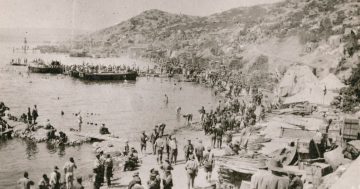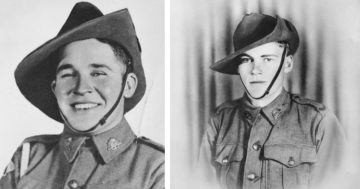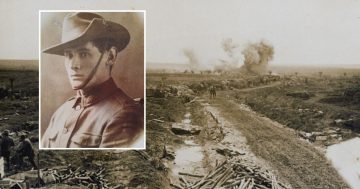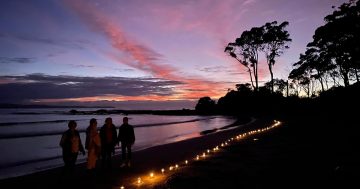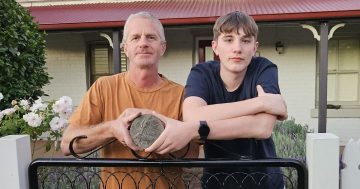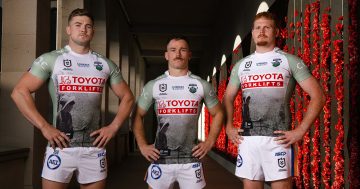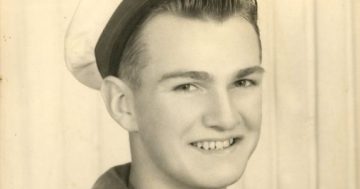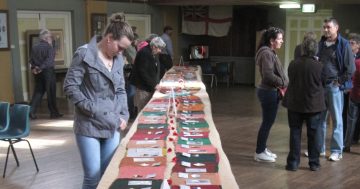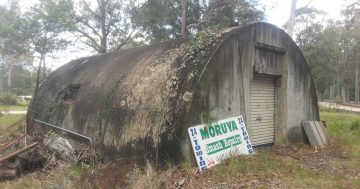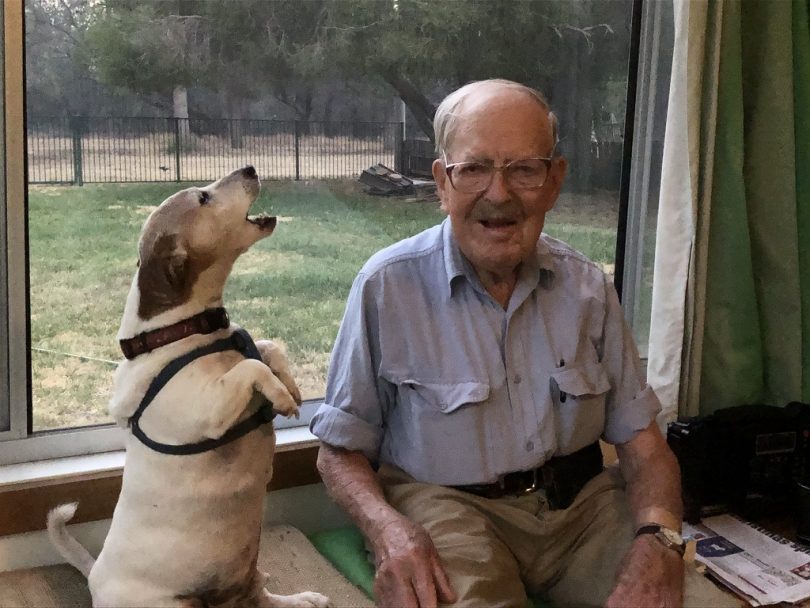
John ‘Wilko’ Wilkinson with Billy at home in Coleambally. Photo: Peter Wilkinson.
“Oh, I’ll be on my feet marching,” says John ‘Wilko’ Wilkinson as he prepares to journey from the Riverina village of Coleambally to Sydney for the annual Anzac day march.
“My son might be nearby with a wheelchair just in case,” he adds with a chuckle. At a distinguished 101 years old, few would deny the New Guinea veteran the chance to take a load off.
“Actually, I’m the last one left of my unit,” he says before reflecting on his time in Australia’s PNG Battalions during World War 2.
Wilko was 20 when he joined the army in 1941. After training at Puckapunyal he says he was persuaded to join the artillery.
“I think my family reckoned I’d have a better chance of coming home in the artillery,” he says.
He was in Darwin in February of 1942 when the war first came to Australia in the form of Japanese bombers.
“We were digging a gun pit alongside the airfield,” John recalls. “We’d noticed the Yanks had been sending a lot of planes over to Timor and we saw this very large formation of planes coming in from the south. It was a very impressive sight. Then we heard the bombs coming down, so we dug in very quickly!”
Despite the shock of the Darwin bombings, Wilko says he grew bored in the artillery and jumped at the chance to join one of the newly formed ‘native units’ as a sergeant major.
“It was a fighting unit and all New Guinea boys apart from officers and senior NCOs,” he says.
“I really enjoyed working with them and we were given some pretty hairy sorts of jobs.
“It was Commandos-style stuff. Sneaking in and doing over as many [Japanese enemies] as we could and getting out.”
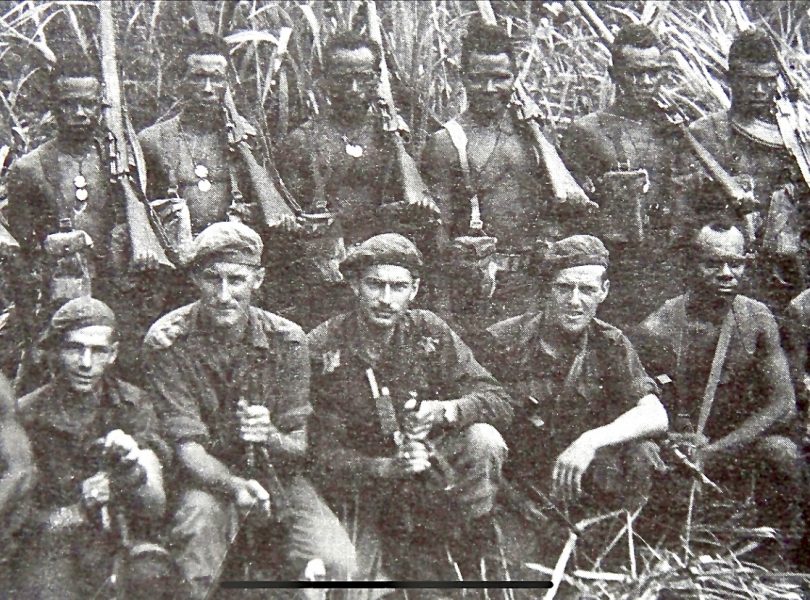
Members of the 2nd New Guinea Infantry Battalion (2 NGIB), August 1945. Sergent Wilkinson in the front, 2nd from the right. Photo: M.B. Pears via PIB NGIB HQ PIR Association.
Wilko speaks fondly of his Papuan comrades.
“Once you had their confidence they were very loyal. And of course, they were supreme for commando-style work because they didn’t have boots and were quiet in the jungle,” he says.
“The New Guinea boys only had a green lap lap and they were fairly hard to see.
“Dressed in our jungle greens, we Australians stood out like dog’s balls! Fortunately [our assailants] weren’t very good shots.”
Local knowledge also benefitted the New Guinea battalions when supplementing their rations.
“A lot of the time in action it would only be bully beef and biscuits, but because we would be in country that some of the boys belong to, we could get fresh vegetables and live a lot better than the Australian troops,” Wilko says.
As the years have passed, the number of surviving veterans has dwindled.
“The New Guineans don’t live as long as we do,” Wilko says.
“After the war, I kept in touch with my batman (orderly). He was younger than I was and years ago I got a telegram written by his daughter to say that he had died.
“There were 567 Australians spread over the three battalions. But I’m the last one.”
While the 101-year-old will be the only New Guinea battalion veteran marching, he won’t be alone.
“After the war, a lot of Australian teachers went up to teach the new recruits in the New Guinea army, to teach them English and so on. They’ll be marching alongside me,” Wilko says.

Wilko and his family in front of the Sydney War Memorial in 2021. (Left to right) Sam Wilkinson, Peter Wilkinson, John Wilkinson, Susie Rowe (nee Wilkinson), Imogen Steyn, Katie Steyn (nee Wilkinson). Photo: Peter Wilkinson
Wilko says he enjoys the opportunity to share his experiences with the next generation and to answer ‘curly questions’ from the kids.
Eighty years after he answered the call, he speaks fondly of those times, but there are hints of the challenges he endured.
When asked if it was a tough time, Wilko pauses, “Well, we were given a lot of jobs. The Australian troops liked to have us out in front. Yeah, it was pretty tough at times.”
Lest We Forget.







